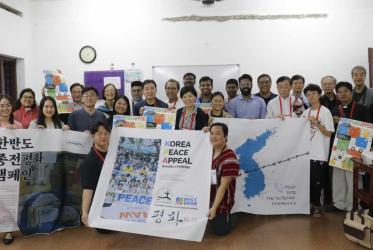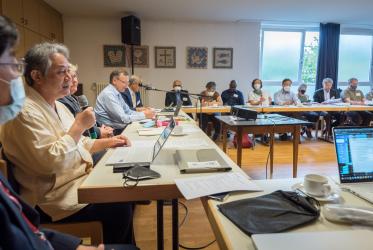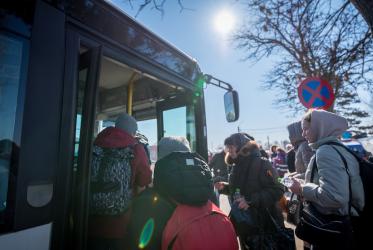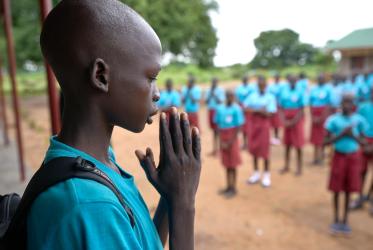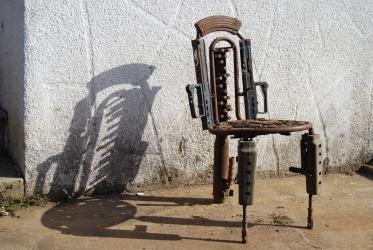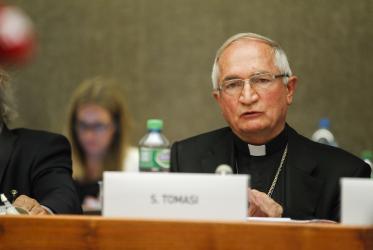Displaying 1 - 20 of 98
25 October 2023
WCC offers input to the UN New Agenda for Peace
13 April 2023
World’s churches converge on Germany city of Karlsruhe to pray and act
16 September 2022
South Sudan ecumenical leader: Don’t give up on war-torn country
19 January 2022
WCC releases joint statement rejecting fully autonomous weapons
05 February 2021

